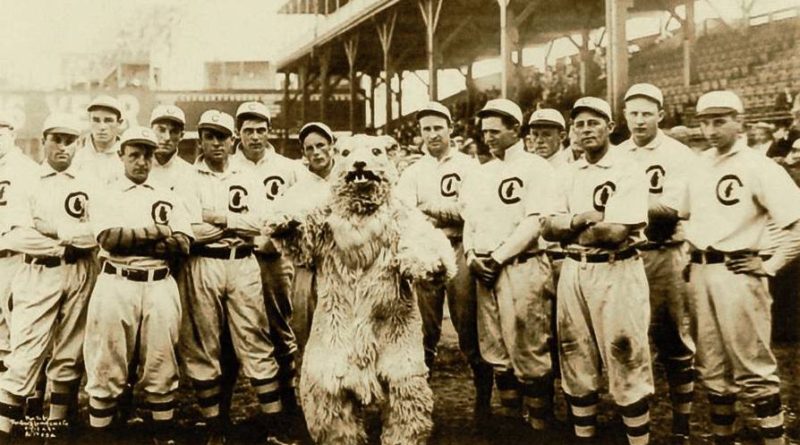And Then There Were Four
This article appeared in The Cauldron | Sports Illustrated on October 14, 2016.
The MLB playoff field is down to just four contenders. Interestingly, it happens to be the most title-starved quartet to ever reach the semifinals in any major American sport.
Of the clubs remaining — the Chicago Cubs, Cleveland Indians, Los Angeles Dodgers and Toronto Blue Jays — only two have won a championship on this side of 1950. Cleveland last won in 1948, 11 years before the team’s manager, Terry Francona, was born. The Titanic sank 1,279 days after the Cubs’ most recent title.
Though Toronto has prevailed more recently than the other three teams remaining, the club’s championship drought is still old enough to drink — in both Canada and the United States. Twenty-three years have passed since Joe Carter ended the 1993 Fall Classic with a walk-off, series-clinching home run for the Blue Jays.
In fact, no other postseason in MLB, NFL, NBA or NHL history has had a longer passage of time since any of its semifinalists’ most recent championship or — for those teams that hadn’t won any titles to that point — inaugural season.
The collective championship ineptitude of the Cubs, Indians, Dodgers and Blue Jays has lasted for 227 such years, by far the most of any set of semifinalists among the major American sports. In fact, if you remove Chicago’s massive 108-year stretch of coming up short, the other three teams’ total would still be among the 20 highest ever in the four largest professional leagues. If the Texas Rangers (56 years without a title), Washington Nationals (47) or Baltimore Orioles (33 since their last one) had advanced this far, the collective futility of the four remaining clubs would have been even more staggering.
Years Since Semifinal Franchises’ Most Recent Title or Inaugural Season
| Sum | Median | Minimum | ||||||||||||||||||||||||||||||||||||||||||||||||||||||
|
|
|
Baseball dominates the tables above because the vast majority of MLB clubs have been around far longer than their counterparts in other sports. When the Majors added the League Championship Series to its postseason format in 1969, there were 24 teams competing with one another for a title. At the time, the NBA (14) and NHL (8) had just 22 teams combined.
As both the number of teams and the number of playoff entrants have expanded in professional sports, it’s become more difficult for any given franchise to navigate its way to a title. Even as clubs like the Boston Red Sox and Chicago White Sox have each been able to end streaks of over 80 years without a championship, others like the Cubs and Indians have struggled to do so. And that’s to say nothing of the eight MLB clubs to have never won it all.
But it seems like some of the longest-suffering franchises are finally finding success.
Over the past decade, the Seattle Seahawks, New Orleans Saints, Indianapolis Colts, Cleveland Cavaliers, Golden State Warriors, Chicago Blackhawks, Boston Bruins and Los Angeles Kings have each erased over 35 years of playoff failures. The Kansas City Royals won their first World Series in 30 years. In June, LeBron James led the Cavs, who entered the league back in 1970–71, to its first championship.
Five current division leaders in the NFL have combined for zero Super Bowl wins in the past 20 seasons — and three of those have never hoisted the Vince Lombardi Trophy. A few months ago, the San Jose Sharks fell just two victories short of their first Stanley Cup. Even the Denver Broncos’ big win back in February came 17 years after their most recent title.
And now, here we are; the Cubs, Indians, Dodgers and Blue Jays are all just eight wins away from ending their own lengthy championship droughts. Exactly how rough has it been for each of them?
CHICAGO CUBS
From 1906–1910, the Cubs appeared in four out of five World Series, won back-to-back titles and had a 116–36 season (the .763 winning percentage remains the best in MLB history). They were the sport’s first dynasty. But now, over a century later, Chicago is still looking for Championship #3. This year, the Cubs led the majors in wins for the first time since 1945, which happens to be the last time they reached the Fall Classic.
CLEVELAND INDIANS
During their 116-year history, the Tribe has played in five World Series, winning just two of them. There were only eight teams in the American League for its first 50 seasons, but Cleveland only won the AL twice during that period (and not by much; neither margin was by more than two games). After winning the pennant in 1954, they went 41 years before even qualifying for the playoffs again.
LOS ANGELES DODGERS
Dating back to 1884, the Dodgers have a rich history — they won four World Series from 1955–1965 and tacked on two more in the 1980s — but they haven’t won it all since Kirk Gibson limped around the bases 28 years ago. L.A. hasn’t even played in the Fall Classic since then. Meanwhile, the neighboring Angels, Ducks, Kings (NHL) and Lakers have won rings in the 2000s; the Clippers stopped losing 60 games a year and the NFL even moved back into town. The Dodgers are looking to take the next step after finishing atop the NL West four straight seasons.
TORONTO BLUE JAYS
From 1985–1993, the Blue Jays won back-to-back championships and five division titles. Only once during that stretch did they end a regular season more than two games out of first place. Not bad for a club that had just joined the league in 1977. But then, for 20 of the next 21 years, Toronto finished more than 10 games behind the AL East winner. In 2016, they are now in their second consecutive American League Championship Series, hoping to reach their first World Series in the wild card era.
The remaining teams in these baseball playoffs don’t have the most impressive postseason resumes. And the painful truth is that three of them will lose their final game in 2016, just as they have for the past one to four generations. But for one fortunate franchise, this is finally going to be “the year.”
Note: The calculations above include championships from football’s AFL, basketball’s ABA and hockey’s WHL.
(photo by George R Lawrence)



